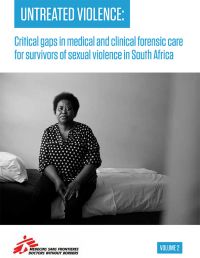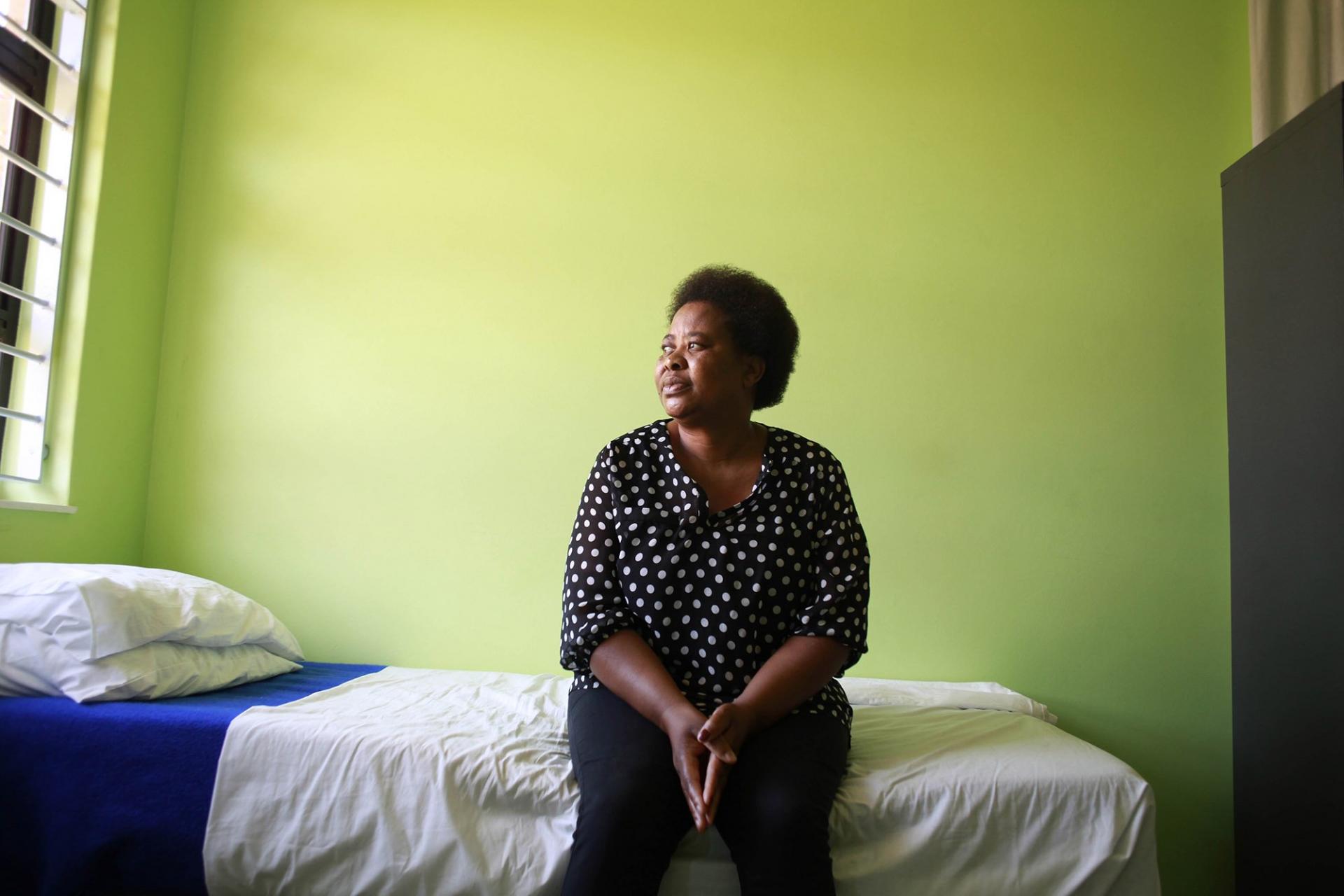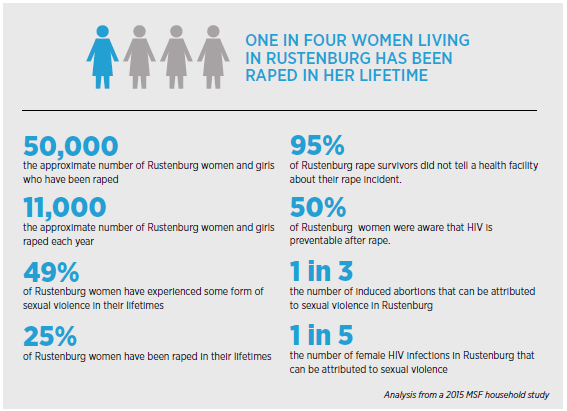Johannesburg/Rustenburg: Nearly three-quarters of public health facilities in South Africa designated to provide services to survivors of sexual violence are unable to provide all the components of medical or clinical forensic care, according to a new report released today by the international medical humanitarian organisation Doctors Without Borders (MSF).
An additional 7% of designated facilities reported they do not have the capacity to see victims, and would refer them elsewhere.
Read the report "Untreated Violence: Critical gaps in medical and clinical forensic care for survivors of sexual violence in South Africa" | Download the report
Read the testimonies: South Africa: Better care for sexual violence survivors

Findings from a national telephonic mapping of services suggest that urgent action is needed by the Department of Health (DoH) so that health care can be accessed by the hundreds of thousands* of people each year who experience sexual violence in South Africa.
Timely treatment by appropriately trained healthcare workers can limit the serious health consequences of sexual violence—including mental health disorders, unwanted pregnancy, and infection with HIV or other sexually transmitted infections —provided care is available.
“Providing a comprehensive package of care to survivors of sexual violence is a medical imperative, but services are rarely available in primary care settings where survivors can more readily access them,” says Dr. Amir Shroufi, Medical Coordinator for MSF in South Africa.
“Although the DoH has designated 265 public healthcare facilities across all provinces to provide services for survivors of sexual violence, 85% of designated facilities are hospital-based, and 56% of facilities rely on doctors for conducting forensic examination, which could result in long wait times for survivors.”
“National findings and MSF experience in North West suggest a need for more healthcare workers to be trained in caring for survivors of sexual violence,” says Cecilia Lamola, a forensic nurse and nurse mentor with MSF in Rustenburg. “Nurses should be trained to conduct forensic examinations with standard clinical care, and lay counsellors can be given skills to offer longer-term support for survivors.”
The report notes that only 27% of facilities provide access to a psychologist, 28% are unable to provide access to a social worker, and 20% do not provide the clinical forensic services that enable survivors to pursue a case in a court of law.
While all facilities called across the country reported having some essential commodities in stock, like post-exposure prophylaxis to prevent HIV and emergency contraception, a lack of standardized systems for tracking service delivery makes it difficult to assess the utilization or quality of care.
Access to services can be a matter of life and death for survivors of sexual violence. Constance Phiri** received care at Brits Hospital after being gang-raped in her home in Bapong on 26 May 2015.
She says “a lot of women do not go to the clinic after being raped because they don’t see any mark on their body, but I would be dead today if it wasn’t for the counselling I received after I was raped - I would’ve killed myself. We need to be able to get these services as women, and we need to use them.”
MSF has been working with the North West Provincial DoH since 2015 to capacitate designated facilities in Bojanala District as ‘Kgomotso Care Centres’ providing a complete essential package of medical and clinical forensic services to survivors of sexual violence.
To date, three facilities in primary care settings have been building the capacity of their staff to create a comforting environment for survivors, offer survivors the services that meet their needs or support referral to the services of other government departments.
*The South African Police Services reported 42,496 rape cases for 2015/2016, but it is estimated that only 4-11% of rapes are reported to the police.
**Name changed to protect identity
About MSF’s response to sexual violence: In South Africa, the 42,496 rape cases reported by the South African Police Services for 2015/2016 are estimated to be only 4-11 per cent of the true number of rapes. An MSF study from 2015 found that on South Africa’s platinum belt, one in four women is raped in her lifetime yet only 1 in 20 ever report to a health facility for treatment.
MSF has been working with the North West Provincial Department of Health since 2015 to capacitate designated facilities as ‘Kgomotso Care Centres’ (KCC), providing a complete essential package of medical and clinical forensic services to survivors of sexual violence. Currently, MSF supports staff in three KCCs - all in primary care settings – to create a comforting environment for survivors, offer survivors the services that meet their needs, or refer them to the services of other government departments.
Find out more about MSF’s work in South Africa.

